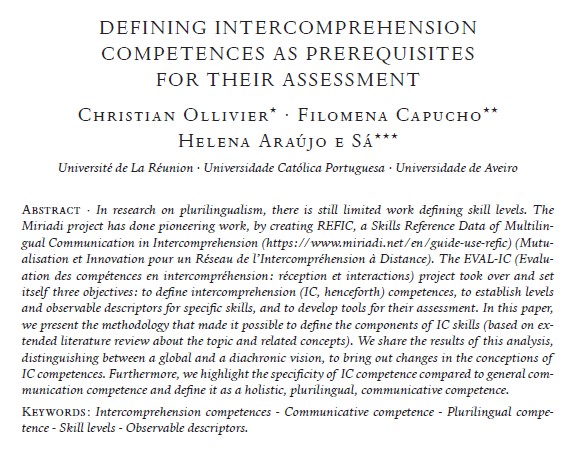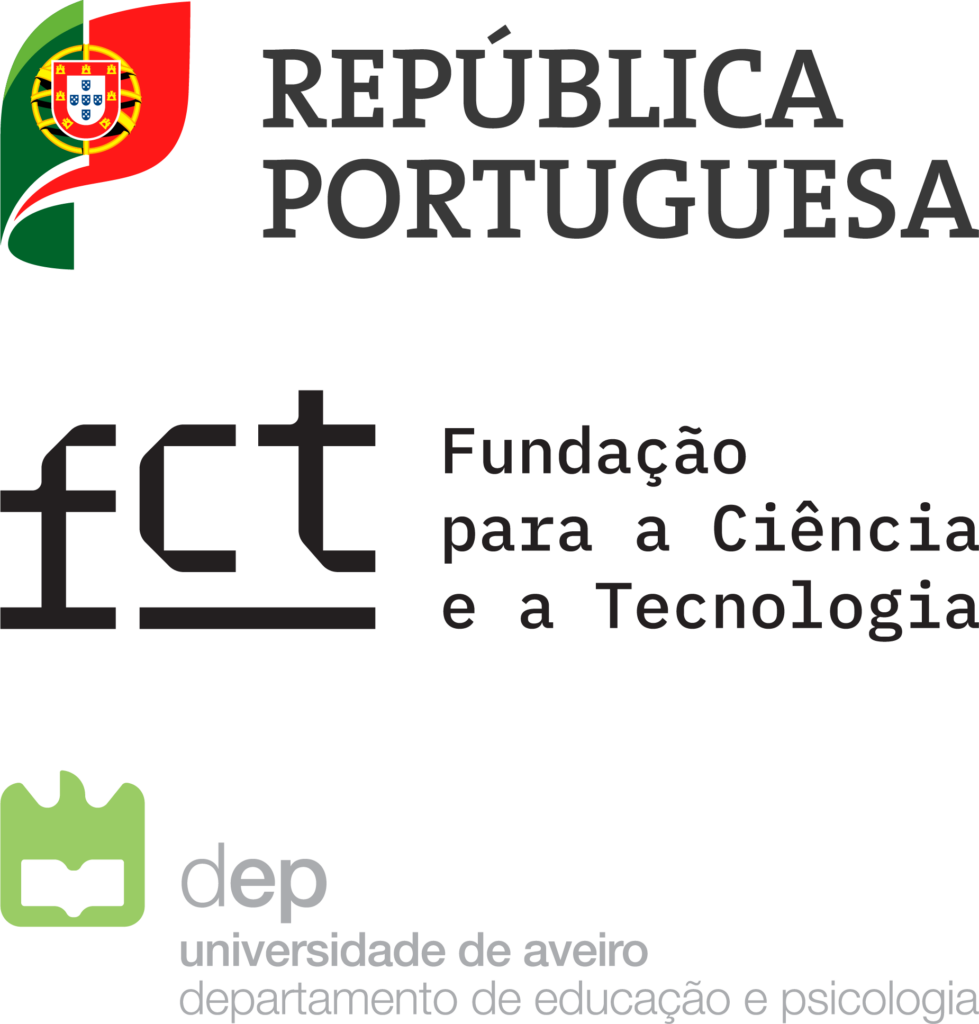Christian Ollivier, Filomena Capucho, & Helena Araújo e Sá (CIDTFF) | Rivista di Psicolinguistica Applicata, volume 2, pp. 16-30
Abstract:
“In research on plurilingualism, there is still limited work defining skill levels. The Miriadi project has done pioneering work, by creating REFIC, a Skills Reference Data of Multilingual Communication in Intercomprehension (https ://www.miriadi.net/en/guide-use-refic) (Mutualisation et Innovation pour un Réseau de l’Intercompréhension à Distance). The EVAL-IC (Evaluation des compétences en intercompréhension : réception et interactions) project took over and set itself three objectives : to define intercomprehension (IC, henceforth) competences, to establish levels and observable descriptors for specific skills, and to develop tools for their assessment. In this paper, we present the methodology that made it possible to define the components of IC skills (based on extended literature review about the topic and related concepts). We share the results of this analysis, distinguishing between a global and a diachronic vision, to bring out changes in the conceptions of IC competences. Furthermore, we highlight the specificity of IC competence compared to general communication competence and define it as a holistic, plurilingual, communicative competence.”
– – – – –
Referência:
Ollivier, C., Capucho, F., & Araújo e Sá, H. (2019). Defining
intercomprehension competences as prerequisites for their assessment, in Rivista
di Psicolinguistica Applicata, volume 2, 16-30. Disponível em https://www.libraweb.net/articoli3.php?chiave=201907702&rivista=77&articolo=201907702002





